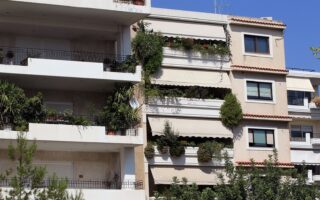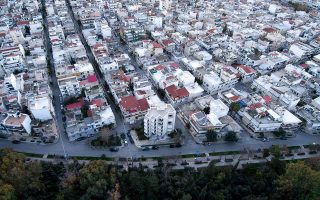Rally in property prices will continue, says expert
Raising Golden Visa limit did not affect demand, program remains popular with investors

The Greek government’s decision to raise the minimum value of investments to qualify for a Golden Visa to 500,000 euros may put the country out of the reach of some hopeful buyers but it will not prevent the program’s continued expansion, a high-ranking executive at Henley & Partners tells Kathimerini, estimating that the rally in property prices will continue in Greece.
The head of the Geneva office of the multinational that specializes in consultancy services for residency and citizenship by investment program, Marios Rafail, explains that the Greek Golden Visa program remains attractive to international investors, not least because it does not require their physical presence. According to Henley & Partners, foreign real estate buyers in Greece are positioning themselves for the long term and 70% are not using the property themselves. Meanwhile, apart from China, the United States and India are fast developing into promising investor pools.
Rafail also challenges the prevailing perception that the Golden Visa program has contributed to skyrocketing rental rates in Greece, while arguing that the abolition of cash transactions for the purchase of real estate in this country will not affect demand from the kind of clients that are interested in such programs.
How many foreigners have acquired property in Greece in recent years?
We don’t have a clear picture, as there are many different parameters that need to be accounted for. Apart from Golden Visa investors, there are also quite a few foreign, mostly European, real estate buyers taking advantage of the tax incentives in Greece, like a one-off property tax or the special framework for pensioners. Furthermore, there are also a number of investors who choose financial tools like time deposits rather than real estate in order to acquire a Golden Visa.
In the past two years, however, our firm has seen an exponential rise in Golden Visa investors. According to the available data on the program, which accounts for more than 200 million euros a month right now, the backlog has tripled in a year and there were some 20,000 applications for a Golden Visa pending up until July.
What are some of the key characteristics of these investors? For example, where do they come from and what is their economic profile?
The main source of investors, traditionally, was China, but in the past few years we have seen a rise in applications from another pool, and that is the United States. But India too. Apart from the traditional players in China and the Middle East, we also have buyers from former Soviet countries. Given how low the previous limit of 250,000 euros was, we get all sorts of people, but in terms of economic profile, most are millionaires or even multi-millionaires.
Do they tend to live in the property they buy or use it for profit?
I would say that around 70% don’t use it themselves, but rent it out.
‘According to available data, the backlog has tripled in a year and there were some 20,000 applications for a Golden Visa pending up until July’
Why do they choose Greece?
First of all, because Greece has a brand name as a tourism destination, it’s more attractive compared to other Golden Visa programs. Furthermore, the 250,000-euro lower limit is very low, not to mention that there is no need for the investor to have a physical presence in the country once they acquire the Golden Visa, in contrast to the Portuguese program, for example, which requires recipients to spend a minimum of seven months a year in the country. Another factor is the speed at which requests are processed, in four to five months, and last but not least, Greece offers much more attractive real estate opportunities than other countries with Golden Visa programs.
What kind of properties do these investors prefer and where?
There are two types of investors: those who are genuinely after a Golden Visa and pick a property that also makes a good investment, and those who want a holiday home in Greece. Most, as I mentioned, rent their property out. They tend to favor the center of Athens or its southern suburbs. There’s been an increase in demand for Thessaloniki recently, as well as for the islands of the Ionian, and Corfu in particular. Crete is another good destination.
The Greek government doubled the minimum Golden Visa investment from 250,000 to 500,000 euros. How has this impacted demand?
Demand is still there, as most areas have not been affected by the increase, and we expect demand to rise even further.
The Greek authorities have also announced that cash can no longer be used in real estate purchases. Will this have an impact?
At Henley & Partners, we discourage such methods anyway and always recommend bank transfers.
The Golden Visa program, coupled with the proliferation of Airbnbs and the market rebound after the crisis have pushed up the cost of housing in Greece as supply has not kept up with demand. What do you have to say about the social impact of the property boom and how could the Greek authorities bolster supply?
The same question cropped up with the Golden Visa program in Portugal, where a discussion is taking place on the rise of housing costs and how this is affected by investors. But if you look at the real estate ads in Portugal and in Greece, only a fraction of sales concern Golden Visa investors, so their impact is a lot smaller than thought.
As far as measures are concerned, doubling the limit is already a step in the right direction for keeping real estate prices in the right balance in most parts of Athens, as well as in Thessaloniki, Mykonos and Santorini.
How do you view the prospects of the Greek market?
Prices are certainly going up compared with 2016-2017, but they are lower than in 2008. Bearing in mind the positive outlook for the Greek economy, specifically the attainment of investment grade, and comparing prices to other European countries, we are quite optimistic that prices will keep rising organically.





